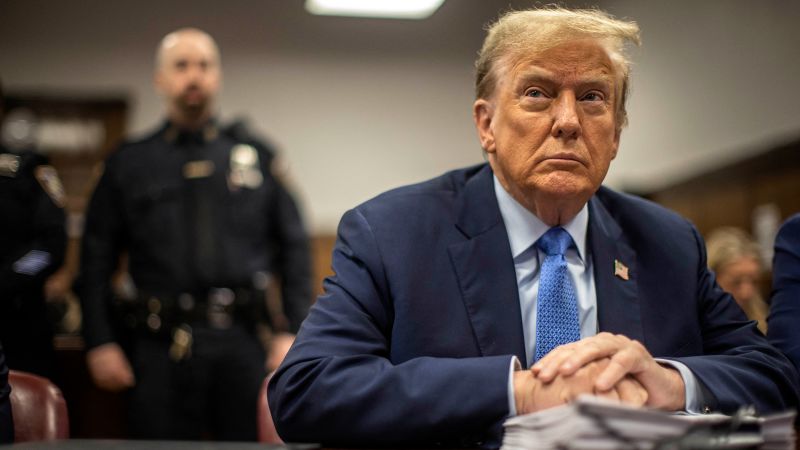Former President Donald Trump is using his criminal trial as a political asset, balancing his courtroom appearances with campaign stops. The trial in New York aims to prove that Trump falsified business records to cover up an alleged affair in 2016, and he has pleaded not guilty. As the trial resumes, prosecutors are expected to question witnesses, including a former banker for Michael Cohen, Trump’s former lawyer involved in hush money payments. The trial is essential in shaping the 2024 White House race as Trump portrays himself as a victim of unwarranted persecution, emphasizing his defense in multiple criminal cases as a central campaign theme.
Trump’s return to full-time campaigning will be brief, as he must attend court hearings regularly, potentially violating a gag order. The contrast between his campaign persona and courtroom defense highlights the unique dynamics of the 2024 election campaign, where court proceedings play a significant role. Trump’s narrative of being targeted echoes to his supporters, positioning himself as a voice for those who feel wronged and betrayed. The opening week of the prosecution case included damaging testimony against Trump, alleging election fraud and financial irregularities. Trump’s defense argues that influencing an election is democratic, setting the stage for a trial that plays out in the public eye.
While the public’s view on the trial’s outcome is divided, a guilty verdict could impact Trump politically. Trump’s campaign stops in swing states like Wisconsin and Michigan aim to solidify his base and contrast his administration’s successes with Biden’s perceived failures. Trump’s message resonates with some voters amidst economic challenges and global turmoil, positioning himself as a successful leader compared to Biden. He and his allies leverage nationwide protests to bolster claims of a nation under siege by left-wing extremism, tapping into emotive imagery to fuel his campaign narrative. The political unrest on college campuses further divides the Democratic Party and provides fodder for Trump’s strongman leadership narrative.
Trump’s campaign strategy aligns with constructing a narrative that presents him as a victim of political persecution while advancing his presidential ambitions. By blending his criminal defense with his political comeback bid, Trump aims to capitalize on public discontent and position himself as a champion against a perceived corrupt system. The upcoming election will hinge on key swing states where Trump faced defeat in 2020, highlighting the critical importance of winning these states in securing a second term. As the trial continues and campaign activities intensify, the 2024 White House race unfolds as a high-stakes battle shaped by legal proceedings and political maneuvering.













